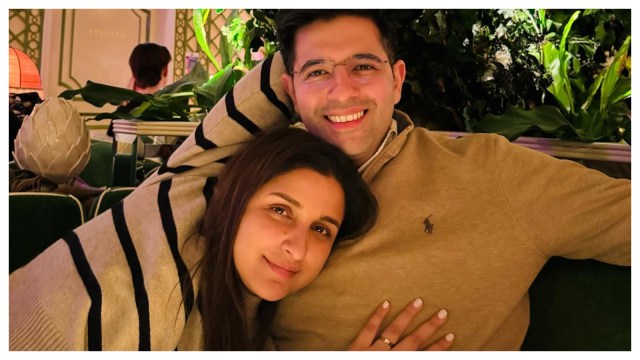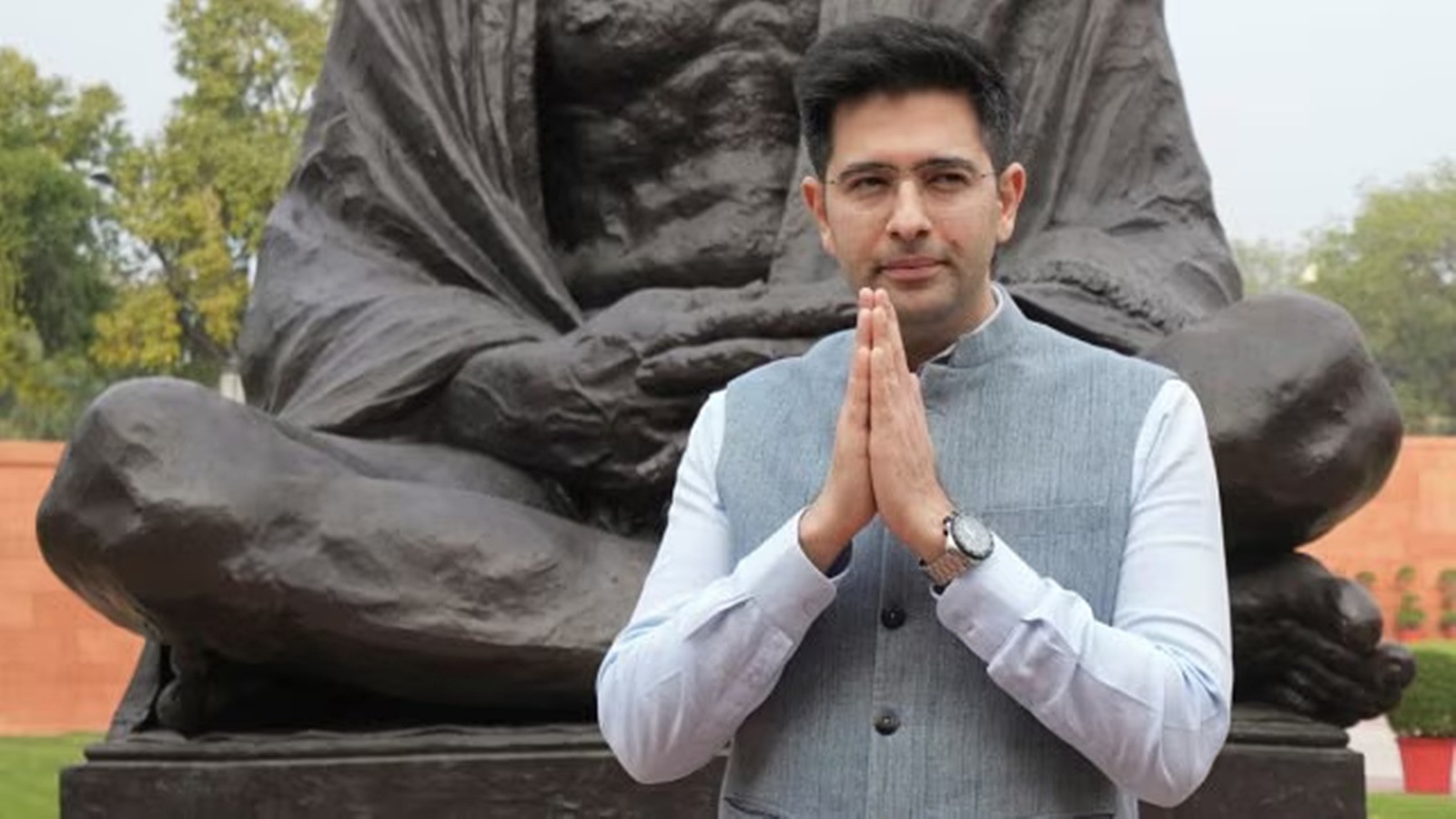AAP MP Raghav Chadha undergoing vitrectomy? We find out more ...
Raghav Chadha married Bollywood actor Parineeti Chopra in 2023. (Photo: Instagram/parineetichopra)
On Tuesday, Delhi minister Saurabh Bharadwaj announced that Aam Aadmi Party colleague and Rajya Sabha MP Raghav Chadha had travelled to the United Kingdom for urgent eye surgery.

Bharadwaj expressed concern about Chadha’s absence from the AAP’s Lok Sabha election activities, emphasising the severity of his condition and the risk of potential eyesight loss. “Raghav Chadha has undergone a major eye surgery in the UK. It is said that his condition was serious and there was a possibility of blindness. As soon as he gets better, he will come back to India and join us in the election campaigning,” the Delhi Health Minister told PTI Videos.
PTI reported that actor Parineeti Chopra’s husband is scheduled to undergo a vitrectomy surgery aimed at preventing retinal detachment in his eye, according to party sources.
What is vitrectomy?According to Dr Siddharth Sain, senior retina consultant, Sharp Sight Eye Hospitals, a vitrectomy is a surgical procedure that removes the vitreous humour, a gel-like substance that fills the eye between the lens and the retina. This surgery is essential for treating a variety of eye conditions, particularly those that affect the retina and the clarity of vision, he said.

“During a vitrectomy, an ophthalmologist makes tiny incisions in the sclera, the white part of the eye, allowing the insertion of specialised instruments. These instruments can cut away and suction out the vitreous humour, enabling the surgeon to access and repair any underlying retinal issues, such as retinal detachments, macular holes, or proliferative diabetic retinopathy,” Dr Sain explained in an interaction with indianexpress.com.
Why does one undergo the surgery?According to Dr Sain, vitrectomy surgery is recommended for a range of serious eye conditions, particularly those that impair vision or threaten the health of the retina.
One of the most common reasons for this surgery is retinal detachment, a condition where the retina separates from the back of the eye, leading to potential blindness if not promptly treated.
In some cases, the surgery may also be performed to remove foreign objects from the eye, particularly in the case of trauma, or to address complications from previous eye surgeries, such as cataract surgery, Dr Sain said. Overall, the surgery’s goal is to address and repair vision-threatening conditions, improving or preserving sight for patients.

Chadha is one of AAP’s vocal leaders and the face of the party’s press conferences against the Modi government. (PTI Photo)
What are the complications of the surgery?Vitrectomy, while a life-changing procedure for many patients, comes with its share of potential complications, according to Dr Sain.
Infection (endophthalmitis) – rare but serious, requires prompt medical attention. Cataract formation – more common in older patients, may require additional surgery. Retinal detachment – new detachment or worsening of existing detachment possible. Increased intraocular pressure – may lead to glaucoma, requiring further treatment. Temporary vision impairment from gas or silicone oil. Silicone oil removal surgery might be necessary. Bleeding, scarring, or swelling within the eye – may require additional treatment. What does recovery look like?Recovery from a vitrectomy varies depending on the individual’s health and the complexity of the surgery. Patients can gradually return to daily activities as their eye heals and vision clears, which may take weeks to months. Here are some things you need to be mindful of when recovering, according to Dr Sain:
Blurry vision initially (gas/oil used). Eye drops for inflammation, infection, and discomfort. Avoid strenuous activities to minimise pressure changes. Specific head position may be needed with gas bubble. Regular follow-up appointments are crucial.
















































